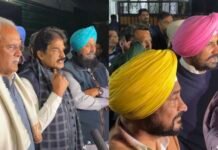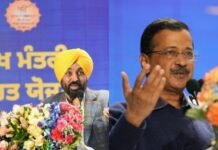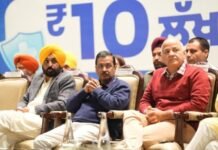Saptrishi Soni : In today’s rapidly evolving media landscape, the foundational ideals of journalism—truth, accountability, and public service—face an unprecedented crisis. Once regarded as the vigilant guardian of democratic societies, journalism now stands at a delicate crossroads, challenged by shifting economic models, political interference, and the erosion of public trust. Yet despite these pressures, the role of the press remains vital—not just as a conveyor of news, but as a force capable of reshaping societies, safeguarding freedoms, and fostering informed citizenship.
At its core, journalism was never intended to merely deliver information. It was a public good—an essential pillar that held power to account and gave voice to the voiceless. Historically, the press has exposed corruption, illuminated injustice, and catalyzed reform. From Watergate to war crimes tribunals, journalists have acted as agents of truth, shaping national narratives and influencing public policy in ways few institutions can.
But this mission is under strain. Around the world, newsrooms are shrinking. Independent media outlets face mounting financial instability, while large corporate entities increasingly shape editorial priorities based on profitability rather than public interest. In many countries, journalists operate under tightening censorship, legal threats, or subtle pressures to align with dominant political or commercial interests. The consequences are stark: reduced investigative depth, limited local coverage, and growing polarization in public discourse.
Despite these setbacks, journalism remains one of the few institutions capable of building bridges across divided societies. When done ethically and fearlessly, reporting can humanize distant tragedies, shed light on hidden injustices, and give marginalized communities a platform. It helps foster empathy in an age of information fatigue and disinformation overload.
Crucially, journalism also empowers the public. A well-informed citizenry is the cornerstone of any functioning democracy. Whether it is by uncovering environmental negligence, spotlighting gender-based violence, or scrutinizing electoral misconduct, the press informs public debate and influences civic participation. In regions where governance structures are opaque or corrupt, the press often becomes the only mechanism through which people can demand transparency and accountability.
The importance of media literacy cannot be overstated in this context. As misinformation proliferates across digital platforms, societies must cultivate critical readers who can distinguish fact from fiction, journalism from propaganda. Supporting ethical journalism—through public funding, nonprofit models, or robust legal protections—should be seen as an investment in democracy itself.
Moreover, journalism must evolve with integrity. Digital transformation offers immense opportunities for storytelling that is interactive, multilingual, and globally accessible. But innovation must be paired with commitment to core values: independence, accuracy, fairness, and human dignity. Emerging reporters must be trained not only in digital tools but in the ethics that underpin public interest journalism.
Globally, the press plays a transformative role—not just in reacting to crises but in anticipating them. Investigative reporting has led to new laws, protected communities, and dismantled powerful cartels. It has held governments accountable during pandemics, natural disasters, and wars. At its best, journalism not only informs—it heals, unites, and inspires.
To preserve these functions, societies must treat journalism not as a commodity but as a civic necessity. This requires fostering a culture where journalists are protected, not persecuted; where facts are debated, not denied; and where truth is pursued not for fame, but for justice.
In the end, the health of any democracy can often be measured by the strength of its press. If journalism falters, so does public discourse—and with it, the vision of a fair, informed, and equitable world.
This article was auto-generated for editorial purposes and does not substitute formal journalism or expert opinion.
#journalismmatters #pressfreedom #mediaethics #truthmatters #democracydefenders




